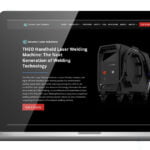PR at its Core
Public relations has been a key player in the marketing funnel since the early 20th century. PRSA formally defines the practice as “a strategic communication process that builds mutually beneficial relationships between organizations and their publics.” At its core, modern public relations still upholds each of these key factors and is instrumental in brand messaging and awareness. However, public relations has evolved throughout the Digital Age to incorporate a variety of tactics and techniques that weren’t so common (or even existing) during the “traditional” era of PR.
PR in the Digital Age
Traditionally, key media targets for a standard PR firm strategy included newspapers, magazines, broadcast TV channels, and other traditional media. Media relations was primarily one-way, where a PR professional communicated to the media with formal press releases. The rise of the Digital Age marked a decrease in print mediums and introduced a variety of widespread internet outlets like social media, newsletters, blogs, and more. With the increase of digital opportunities, PR professionals can now tell their brand’s story across a multitude of mediums.
Social media is a prime example of how PR has evolved in the Digital Age — there are countless opportunities to build your brand across social platforms. Working hand-in-hand with digital PR, brands can amplify amazing press features through social media posts, extending the reach of the placements and strengthening brand authority within their industry. Additionally, influencer marketing is a crucial player in building brand awareness to target audiences.
Influencer partnerships help build authentic and trustworthy relationships between brands and their audiences. In fact, 71% of shoppers are more likely to purchase products and services based on social media referrals. Social media is an ever-changing platform, allowing brands to engage in a diverse range of marketing campaigns through organic seeding, influencer whitelisting, TikTok partnerships, and more — the opportunities are seemingly endless.
Another tool that has been introduced to the PR world is affiliate marketing. Following the slow burn of print media, many digital publications now rely heavily on online revenue to remain profitable. With affiliate marketing, publishers can earn a commission for product purchases made from their articles. Because of this, publications will often favor brands that have an affiliate program. This turns traditional eCommerce PR upside down and often blurs the lines of what it means to secure an “earned” media placement. However, PR professionals and affiliate marketers can work together to marry their strategies and maximize media outreach.
When it comes to modern PR, a common caveat experienced by PR industry professionals is breaking through the noise. Following the influx of digital mediums, journalists now receive hundreds of emails a day, so how can PR professionals effectively get their messages across (or even get their emails noticed, for that matter)? From the media side, editors need stories to perform well online and on social media, so they will prioritize articles that will receive the most traffic and revenue. As a PR professional, you should regularly use Google Trends and SEO data to support your pitches. If your client falls within a trending topic, use this to your advantage and craft a compelling, data-driven pitch. The media (and your client) will thank you!
Why it Matters
In today’s economic climate, it’s no surprise that marketing budgets across all industries have taken a toll. With PR being a top-of-funnel strategy focused on brand awareness, many brands mistakenly pull the plug on their PR campaign in order to focus on a more revenue-driving service.
However, it is during these times when PR is the most important marketing strategy within the marketing mix. PR professionals are here to tell your brand’s narrative the right way by carefully crafting your brand’s key messaging. By securing earned media placements, PR professionals help build your brand’s credibility, which is of utmost importance during trying times. In fact, Nielsen found that PR is almost 90% more effective than advertising at establishing, building, and protecting credibility. The authenticity of earned PR placements truly goes a long way!
PR at Power Digital
In the past few months, Power Digital Marketing’s PR team has seen first-hand how traditional PR and modern digital marketing can come together to create a powerhouse strategy. Following the merge between our data-driven team and Covet’s PR professionals, we have combined best-in-class consumer PR with science and data analytics to craft campaigns that truly move the needle for our clients. There are differences between digital marketing vs public relations and their benefits to your company. When these two avenues are aligned on strategy, the results can be astronomical.
Our PR tactics are ROI-driven and strengthen the account strategy across all channels, synonymously creating content for email, paid social, organic social, and other channel campaigns. And, unlike traditional PR, our campaign results are measurable. Our data-driven resources allow us to measure the success of campaigns through domain authority, website traffic, backlinks, affiliate revenue, and more.
The Bottom Line
While traditional PR has seen many digital changes over the years, we do not classify the practice as “dead.” Rather, we have observed a “rebirth” of the traditional public relation practice. Each of the new factors (affiliate partnerships, social media, etc.) can serve as a catalyst for your PR strategy rather than a threat to your PR campaign. Integrated PR campaigns that work hand in hand with other new digital channels will only strengthen your overall brand strategy. It’s important to note that public relations and digital marketing are ever-changing industries, so it is important to be nimble and prepared to jump on the next unknown. We know we are!
The post Is Traditional PR Dead? appeared first on Power Digital Marketing.
Article From: "Power Digital" Read full article
 SERPCOM is a full-service Boston digital marketing agency focused on improving online visibility, increasing traffic, raising revenue and providing SEO services.
SERPCOM is a full-service Boston digital marketing agency focused on improving online visibility, increasing traffic, raising revenue and providing SEO services.
SEO-first: A fundamentally better approach to online marketing.
Digital Marketing | SEO | Web Design & Development | Search Engine Marketing

SERPCOM is a full-service Boston digital marketing agency focused on improving online visibility, increasing traffic, raising revenue and providing SEO services. SEO-first: A fundamentally better approach to online marketing.
Digital Marketing | SEO | Web Design & Development | Search Engine Marketing
SERPCOM is a full-service Boston marketing agency focused on improving online visibility, increasing traffic, raising revenue and providing SEO services for leading brands.
Maximize the value of your website and turbo charge your online marketing efforts with SERPCOM. Call or click the button and start making the web work for you.
Just click on the Phone Number to dial on your phone:




